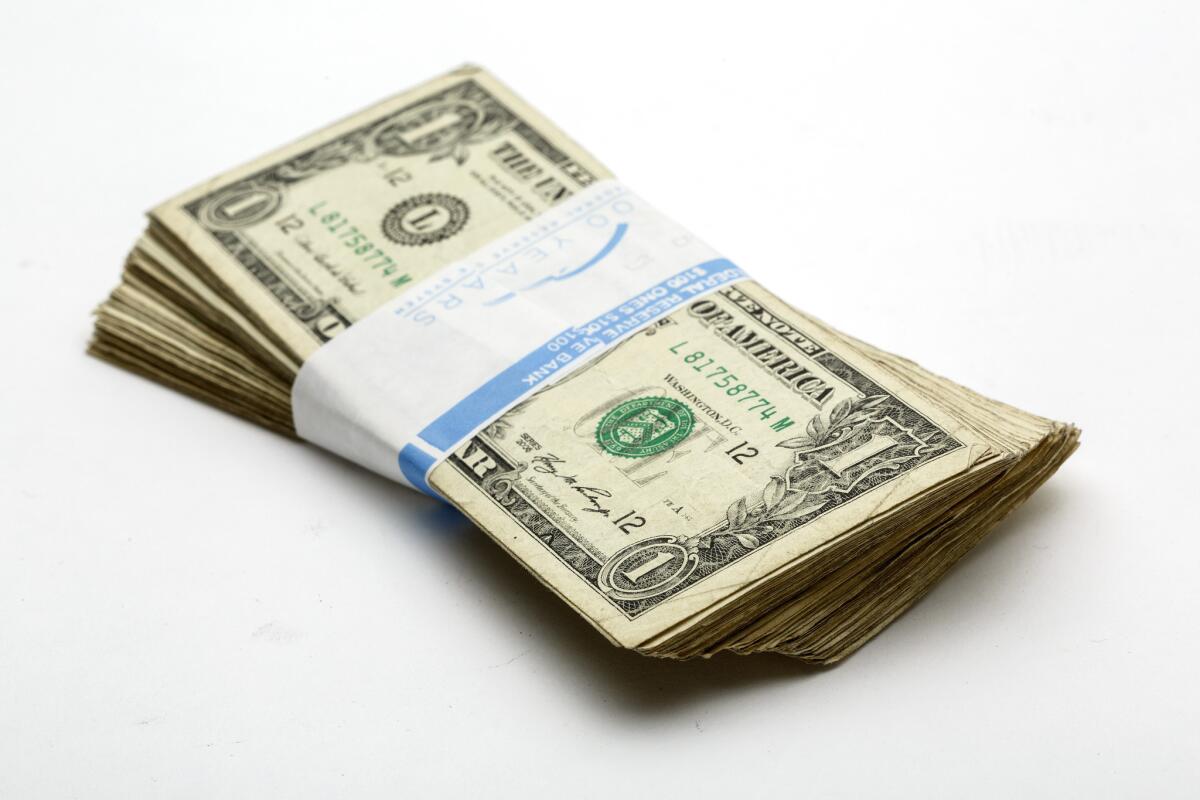This is how much a cancer diagnosis will cost you -- in lost income

How much will cancer cost you? A new study says patients diagnosed with cancer see their income fall by 40% in the following two years.
- Share via
Health isn’t the only thing that declines after a cancer diagnosis — a patient’s income is likely to plummet as well, according to a new study.
In the second year after being diagnosed with cancer, survivors were earning up to 40% less than they had been before they became sick, on average. Even in the fifth year after diagnosis, annual earnings still had not recovered to their precancer levels, researchers reported this week in the journal Cancer.
Family members helped fill that gap, the researchers reported. Total family income dropped too — in the second year after diagnosis, it was down by more than 20% and remained there for at least a year. But by the time five years had passed, family income had recovered to prediagnosis levels.
The findings are the first to assess the extent to which the disease affects paychecks in a nationally representative group of people.
See the most-read stories this hour >>
Researchers led by Anna Zajacova, a sociologist at the University of Wyoming in Laramie, examined data from the Panel Study of Income Dynamics. That study has been asking a random sample of Americans about their health — both physical and financial — at least once every two years since 1968.
During the years 1999 to 2009, the interviewers included questions about cancer. That turned up 1,117 people who were diagnosed with cancer during that period and 15,856 whose entire lives had been cancer-free. Zajacova and her colleagues used that data to get a clearer picture of what happens to an American worker’s paycheck after cancer is discovered.
In the first year following the diagnosis, these patients missed an average of five weeks of work. By the third year, the odds that these cancer survivors would still be gainfully employed was 9 percentage points lower than it had been before the diagnosis.
A cancer diagnosis was a bigger financial blow for men than for women, according to the study. Among men in their prime working years — ages 25 to 64 — getting hit with cancer meant spending seven to eight weeks away from work. In addition, men diagnosed with cancer saw their odds of employment fall by an average of nearly 20 percentage points.
Even in the third year after diagnosis, men’s wages and salaries were 60% lower than they had been earlier. Total family income took a blow as well, remaining more than 40% below precancer levels in Year 3, though it “recovered somewhat” by Year 5.
Income and job losses for women diagnosed with cancer were much smaller, the researchers found — too small to be statistically significant. That may be due to the fact that women are less likely than men to be in the labor force in the first place, the study authors wrote. It may also be a sign that cancer treatments were more debilitating for men than for women.
Still, with roughly 14.5 million cancer survivors in the U.S., cancer’s economic impact — for patients, their families and the economy as a whole — should not be overlooked, Zajacova and her colleagues wrote.
“A cancer diagnosis has serious implications for employment and labor-market earnings for many years,” they wrote. “Cancer history thus plays an important role in the economic well-being of millions of Americans.”
Follow me on Twitter @LATkarenkaplan and “like” Los Angeles Times Science & Health on Facebook.
ALSO:
Cord-cutting: It’s easier (and cheaper) than you think
Girl in Vietnam War napalm photo gets laser treatments in U.S. to heal her scars
Here’s what archaeologists found in a warrior’s grave that’s been untouched for 3,500 years







